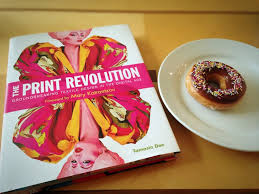Revolutions have always had an impact on the society. Unlike wars fought by kings and nobles, revolutions’ epicentre lay among the common people and took place over a period of time. The print revolution was no different.
Print revolution, like any other was development of people. It transformed their lives. It was proof of beginning of the age of reasoning – the Renaissance. This revolution helped in opening up new ways of looking at things.
Before the print revolution reading, writing and studying was restricted to only the elites – nobilty, clergy and aristocrats. Most of the common people in a kingdom were illiterate. They practiced the oral culture – propagating news, events, stories and sacred texts through word of mouth. That is why the clergy was held in high respect as all the religious knowledge was communicated orally and everyone blindly followed it trusting on the Church’s knowledge. Moreover, writing and copying books was a laborious job since everything was handwritten.
Things changed once printing press was invented and commercialised. The cost of producing books came down. Low-priced books could now reach a wider section of people. Due to high levels of illiteracy, books were still inaccessible to those who could not read what was written in them. They listened to the books being read out by someone. Even the publishers filled the books with illustrations and pictures for such people to understand the text. Thus oral and reading culture intermingled.
As mentioned earlier, printing revolution ushered a new era of reasoning, circulation of ideas and debate. Those who disagreed with rigid beliefs and established authorities could now print and propagate their ideas. It induced fear in some higher sections of the society who had been enjoying the authority over the masses. The Roman Catholic Church was apprehensive that printed book will affect and disillusion people’s minds. They believed it might spread rebellious and sacrilegious thoughts. Consequently, the Church started to criticize printed literature. The common people did not agree with this and ultimately it led to the Protestant Reformation, a movement to reform the Catholic Church.
Print revolution changed the relationship of people with information, knowledge, institutions and authorities.





20 Comments. Leave new
Well Explained about print revolution..
A good and an informative one too!!
Great article Akul. It was good to know about this topic!
Thank you everyone: Chitranshi, Arshdeep and Kriti. I am happy you all liked it.
Well written! 😀
Thanks Abhinav.
Nicely described…
Very well written and explained…
You’ve analysed the whole thing very well
nicely Written
Nice article.the impact of print revolution is described very well.
Thanks Yatin, Soham, Alisha, Akshita and Avneet for reading and commenting.
Extremely well written.
Thank you Nirali
Unique, interesting and well written article
Unique concept…!
Thank you Rahul and Padma. I am happy you both read it.
This is so very true. Very well explained.
Well explained! Nice work!
Good work 😀
Read something new 😀